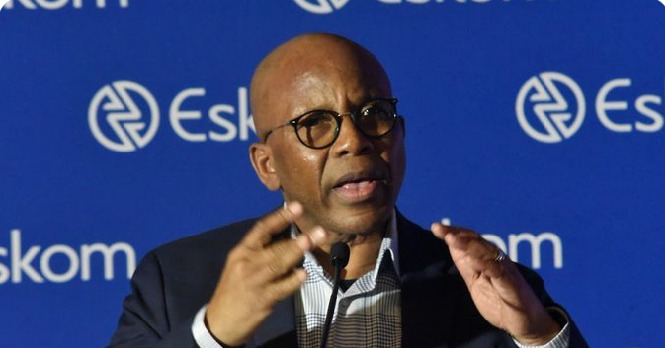In recent months, allegations of cartel activity within Eskom, South Africa’s embattled state-owned power utility, have drawn significant public attention. Claims that organized networks are exploiting Eskom to the detriment of the national power supply have been raised in media reports and by public figures. However, Mteto Nyati, Eskom’s board chair, has refuted these allegations, stating that the board has found no evidence to substantiate such claims.
Nyati addressed the issue during a recent media briefing, emphasizing the importance of maintaining integrity and transparency within Eskom’s operations. “We take any allegations of misconduct or corruption seriously,” he said. “However, after thorough investigations, the board has not uncovered any evidence to suggest the existence of cartels operating within Eskom.
The claims of cartels infiltrating Eskom have become a significant talking point as the utility continues to face operational and financial challenges. South Africa’s energy crisis, marked by persistent load-shedding, has exacerbated public frustration, and many have sought to understand the root causes of Eskom’s struggles. Allegations of corruption and sabotage have frequently been cited as contributing factors.
Reports suggesting the existence of cartels within Eskom surfaced earlier this year, with accusations pointing to organized groups that allegedly manipulate procurement processes, siphon funds, and undermine operational efficiency. These claims gained traction following the findings of the Zondo Commission into state capture, which highlighted systemic corruption at Eskom during previous administrations.
Despite the seriousness of these accusations, Nyati maintained that there was no concrete evidence to back them. He reiterated the board’s commitment to addressing all forms of corruption and ensuring accountability within the utility.
Nyati explained that the board had undertaken a range of measures to probe the allegations. These included engaging internal auditors, collaborating with law enforcement agencies, and reviewing operational and procurement records. According to Nyati, these efforts revealed no credible evidence of cartel activity.
We have robust systems in place to identify and address irregularities,” he stated. “If any evidence of such activities emerges in the future, we will not hesitate to act decisively.”
Nyati also emphasized the importance of avoiding baseless allegations that could distract from Eskom’s core mission of stabilizing the country’s energy supply. “Speculation without evidence undermines the work being done to address Eskom’s challenges, he said.
The board chair’s statement has elicited mixed reactions. Some industry experts and commentators have expressed skepticism, arguing that systemic corruption at Eskom may still exist, even if not in the form of formalized cartels.
Energy expert Chris Yelland commented, “While the absence of evidence is important to note, it does not necessarily mean there are no structural inefficiencies or corrupt networks within Eskom. These issues can be complex and hidden from plain sight.”
Others have praised the board for taking a firm stance and committing to transparency. Business Unity South Africa (BUSA) lauded Nyati’s approach, stating, “Acknowledging and addressing corruption concerns openly is critical to restoring public trust in Eskom.”
Meanwhile, some political figures have remained unconvinced. Critics, particularly from opposition parties like the Democratic Alliance (DA), argue that more needs to be done to root out corruption within Eskom. They have called for an independent investigation into the claims to ensure impartiality and thoroughness.
Eskom’s challenges extend far beyond allegations of cartels. The utility continues to grapple with aging infrastructure, financial deficits, and operational inefficiencies. Load-shedding, a result of insufficient generation capacity, has become a daily reality for South Africans, stifling economic growth and disrupting everyday life.
To address these issues, the board, under Nyati’s leadership, has rolled out several initiatives aimed at improving operational efficiency and reducing reliance on coal. These include accelerating the integration of renewable energy sources and enhancing maintenance programs for existing power plants.
Despite these efforts, Eskom remains under immense public and political pressure to deliver results. The denial of cartel allegations may temporarily alleviate some concerns, but it does little to address the broader mistrust surrounding the utility.
Nyati’s assertion that there is no evidence of cartels within Eskom underscores the importance of substantiating allegations with concrete proof. While his comments may provide some reassurance about the utility’s governance, they do not eliminate concerns about broader inefficiencies and potential corruption.
For Eskom to regain public confidence, it will need to continue demonstrating transparency, accountability, and measurable progress in resolving South Africa’s energy crisis. In the meantime, the debate over the existence of cartels and their potential impact on the utility is unlikely to subside.






















